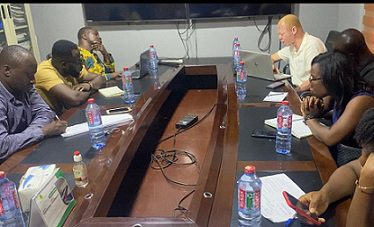Professor Yanqiu Zhang, Director of the Africa Communication Research Centre at the Communication University of China (CUC), has urged media practitioners to pursue constructive journalism to ensure global peace and development.
Professor Zhang said the media played an important role in national development through the dissemination of factual information to the masses and urged media professionals to uphold the tenets of professionalism in the discharge of their duties.
The Professor made the call at a lecture for Journalists at an exchange programme on the topic “Constructive Journalism for Global Development Communication” in Beijing, China.
Prof Zhang, who is also the Deputy Dean of the Institute for a Community with a Shared Future, CUC, said constructive journalism should be based around reporting solution-focused news instead of revolving only around negative and conflict-based stories.
”News reports must provide facts, figures, and up-to-date information, demand accountability, and point out grievances,” she said.
She stressed that constructive journalism was crucial because emphasised solutions and people-centred approaches to news gathering and narration.
The Professor said there were concerns as to whether journalism should focus on only the negatives or both the positives and the negatives but argued that constructive journalism provided more context to the stories and made the consumer of the news more intelligent.
“Instead of solely reporting on conflicts and problems, Constructive journalism aims to gain a more comprehensive portrayal of the issues at hand,” she said.
The professor said constructive journalism focused on three pillars: solutions-oriented news, nuances (looking at the world with both eyes), and conversations (where the news should be dialogue and discussion).
She said China, during the past 40 years, had developed rapidly under the state-owned media because they believed in the philosophy that “the media must play a key role in social stability and economic development”.
In March 2022, all 193 members of the United Nations General Assembly passed a resolution supporting bicycles as a tool for combating climate change.
The decision was necessitated due to China’s successful policy of public bicycle sharing in tackling the scourge of air pollution and contributing to sustainable development.
The Professor stated that writing a story about China’s introduction of bicycles should revolve around the rationale for the initiative, the benefits, and the challenges, rather than highlighting only the negatives.
She said, “Do only negative stories make the news? Stressing that negative news undermined the intelligence of the reader or audience because the information did not reflect the entire story.”
Prof Zhang said Africa’s priority should be the provision of food, clean water, and other necessities rather than rights that would not bring development.
















